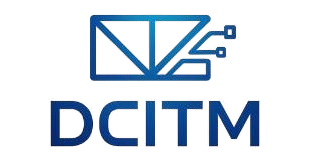Digital marketing is undergoing rapid transformation, fueled by technological innovation, changing audience expectations, and increasing regulatory oversight. As we move through 2025 and beyond, the field is shifting toward greater personalization, interactivity, and data intelligence. Yet, marketers must also navigate pressing challenges around privacy, ethics, and authenticity. This article explores emerging trends, expert perspectives, and the implications of AI-driven change—offering a roadmap for businesses, marketers, and curious observers to adapt and excel in this evolving ecosystem.
Key Emerging Trends
AI is the defining force of modern marketing—experts predict that by the end of 2025, AI-powered approaches could drive nearly three-quarters of all marketing operations. Below are the most transformative developments shaping the future:
1. AI-Powered Personalization and Automation
Artificial intelligence enables hyper-personalized marketing through real-time data analysis, predictive modeling, and automated content generation. Chatbots, recommendation engines, and predictive analytics will deliver experiences that anticipate user needs. However, success depends on integrating human creativity with AI’s precision—ensuring emotional resonance in automated interactions. Future-ready marketers must master AI tools and machine learning fundamentals to remain competitive.
2. Voice Search and Conversational Content
With voice assistants and smart devices now mainstream, optimizing for natural language queries has become essential. Marketers are adapting SEO strategies to emphasize conversational phrasing, long-tail keywords, and structured data. A new discipline—Answer Engine Optimization (AEO)—is emerging to help brands stay visible on AI-driven search platforms like Perplexity and SearchGPT.
3. Immersive Technologies (AR, VR, and the Metaverse)
Augmented and virtual reality are reshaping how brands engage users. Expect to see AR-powered product previews, VR-based brand experiences, and metaverse showrooms that blur digital and physical boundaries. These immersive interactions are particularly impactful in e-commerce, education, and entertainment sectors.4. Social Commerce and Short-Form Video
Social media is evolving into a primary shopping destination. Platforms such as TikTok,Instagram, and YouTube Shorts will continue driving discovery through shoppable content and live-stream selling. Authenticity via user-generated content (UGC) will enhance trust, especially for smaller brands. By 2025, global digital ad spend is projected to exceed $730 billion, largely fueled by these interactive, short-form channels.
5. Sustainability and Privacy-Centric Marketing
Consumers now favor brands that prioritize environmental responsibility and ethical transparency. Campaigns emphasizing sustainable sourcing, reduced carbon footprints, and honest storytelling will gain traction. Concurrently, as third-party cookies disappear and data regulations tighten (e.g., GDPR), first-party data collection—data obtained directly and consensually from users—will become the cornerstone of competitive marketing.
6. Omnichannel Strategies and Advanced Analytics
Integrated experiences across web, email, social, and apps will depend on unified analytics. Marketers will use AI-driven insights to tailor messaging across touchpoints, refining customer journeys in real time. While social platforms dominate attention, email marketing remains a powerful B2B tool, supported by behavioral analytics and automation.
Diverse Perspectives: Opportunities and Risks
A full understanding of digital marketing’s future requires examining viewpoints from different stakeholders.
From Marketers and Agencies:
Professionals see AI as both an efficiency multiplier and a creative enabler. Tools can automate UGC ad generation, optimize campaigns, and measure ROI more precisely. Yet, there’s a growing recognition that soft skills—adaptability, empathy, and storytelling—remain irreplaceable. In an AI-saturated space, human authenticity (e.g., founder-led branding) will differentiate meaningful voices from the noise.
From Consumers:
Audiences appreciate relevant, seamless experiences—but many express unease about hyper-targeting that feels invasive or manipulative. Increasingly, customers reward brands that respect privacy and align with genuine sustainability values, while rejecting performative “greenwashing.”
From Ethicists and Critics:
Experts warn that AI’s persuasive power could cross ethical lines—manipulating behavior or exploiting user vulnerabilities. Algorithmic bias, lack of transparency, and weak data safeguards remain critical risks. Some critics argue that AI-generated marketing content often lacks depth or originality, threatening the creative quality of the industry. Calls are growing for clear ethical frameworks and transparent algorithmic practices to sustain trust.From Academia and Professionals:
Scholars emphasize the importance of responsible AI governance, particularly around consumer data and employee privacy. They caution that unequal access to AI tools may deepen the digital divide, creating disparities in marketing performance and innovation.
Predictions and Strategic Advice
The next wave of digital transformation will likely feature AI-native search engines and conversational web interfaces that change how users interact with brands online. To thrive, businesses should:
- Prioritize ethical data practices and ensure transparency in AI use.
- Invest in AI literacy while maintaining human creativity as a strategic advantage.
- Adopt immersive technologies early to engage consumers in new dimensions.
- Balance personalization with privacy, using trust as a long-term brand differentiator.
Conclusion
The future of digital marketing is dynamic, data-driven, and deeply intertwined with artificial intelligence. Success in this landscape will depend not just on technological adoption, but on ethical innovation and human empathy. Marketers who remain agile, responsible, and creatively grounded will define the next era—where technology amplifies, not replaces, the human connection.
References
Digital Marketing Institute. (2024). Digital Marketing Trends 2025. https://digitalmarketinginstitute.com/blog/digital-marketing-trends-2025
Forbes Agency Council. (2025). The Future of Digital Marketing: Trends to Watch in 2025. https://www.forbes.com/councils/forbesagencycouncil/2025/03/26/the-future-of-digital-marketing-trends-to-watch-in-2025/
Demand Sage. (2024). Digital Marketing Statistics 2025. https://www.demandsage.com/digital-marketing-statistics/
Lumenalta. (2024). The Positive Impact of AI for Good. https://lumenalta.com/insights/the-positive-impact-of-ai-for-good
ScienceDirect. (2024). The impact of artificial intelligence on digital marketing: A review. https://www.sciencedirect.com/science/article/pii/S2666659624000295
